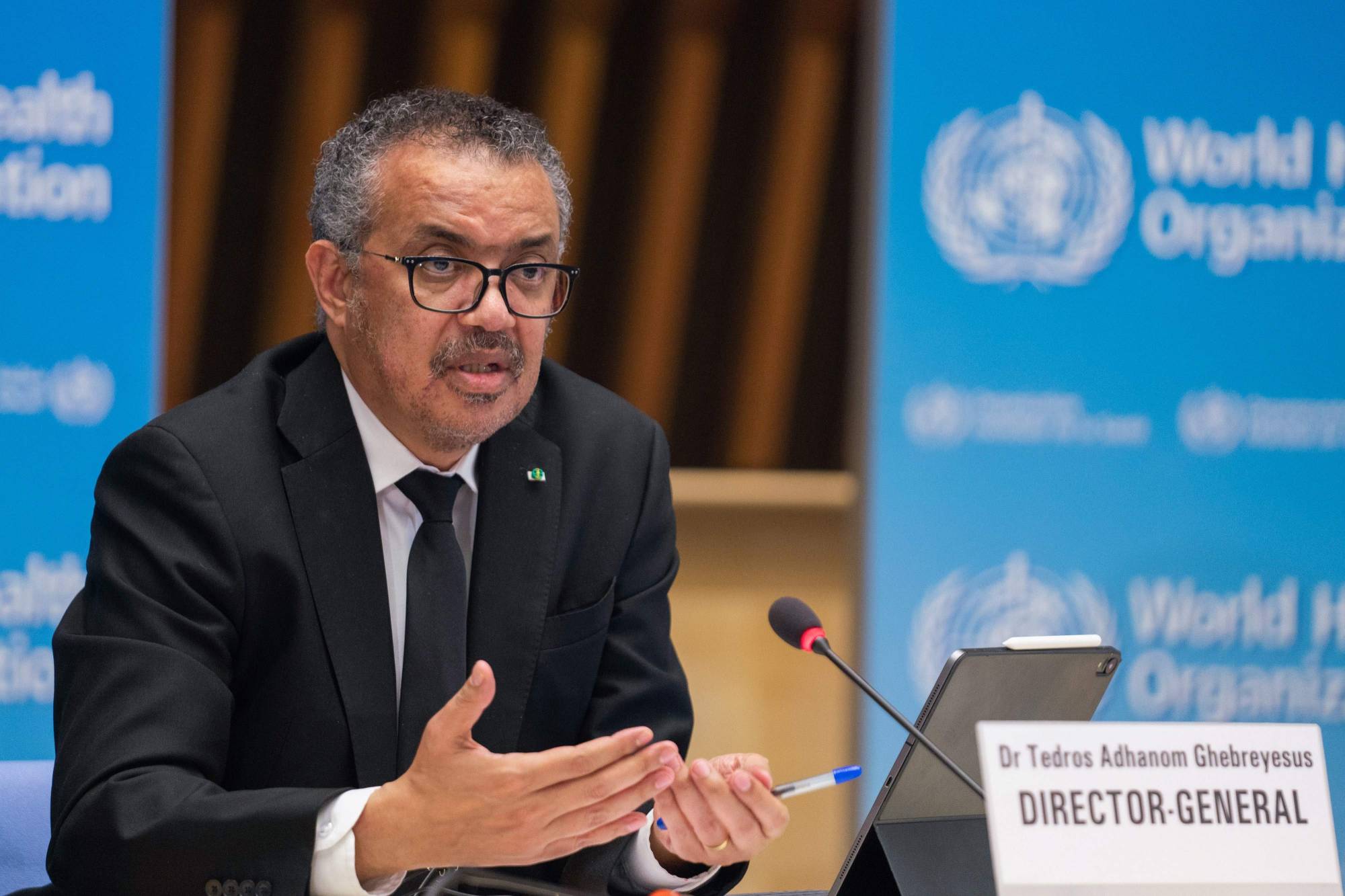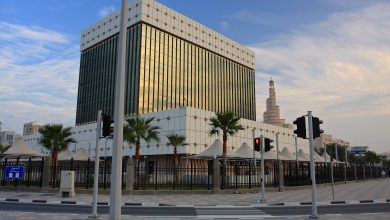WHO Director-General Praises Qatar’s Support for Poor Countries to Confront COVID-19 Pandemic
مدير عام منظمة الصحة العالمية يشيد بدعم دولة قطر للدول الفقيرة لمواجهة كوفيد-١٩
QNA
Doha: HE Director-General of the World Health Organization (WHO) Dr. Tedros Adhanom Ghebreyesus praised the support provided by the State of Qatar for the poor countries to confront the COVID-19 pandemic, noting that with the continued support by the State of Qatar, “we can build a better future for the African continent and the world.”
Speaking at the opening session of Qatar Economic Forum, Powered by Bloomberg, Ghebreyesus warned on the increasing COVID-19 infections in the African nations which lack vaccines to confront the pandemic, noting that the continent has not known a breakthrough until now, and it appears to be experiencing a rise in the number of cases with the lack of vaccines.
With the help of the “COVAX” initiative, 52 African countries have begun to vaccinate their populations, and there are only 40 million doses available, which means that less than two people out of ten people will receive the vaccine while the “COVAX” program aims to vaccinate 10 percent of the population in each country by September, 40 percent by the end of this year, and up to 70 percent by June 2022, he added.
He underlined that the World Health Organization and its partners are working over a period of twenty-four hours to provide vaccines and raise the production in order to achieve this specific goal of the “COVAX” program. However, he warned that the African continent needs to build its capacities to manufacture vaccines.
The WHO Director-General said that the current crisis revealed that the African countries cannot rely on importing vaccines, and must build capacities to manufacture vaccines within the continent, not only to confront the COVID-19, but also to confront all epidemics and produce other medical materials.
The Qatar Economic Forum, Powered by Bloomberg, discussed in one of its first day’s sessions the future of vaccines in Africa, shedding light on some initiatives to support the African countries which speakers say face a severe shortage of vaccinations and difficulties in providing them.
قنا
الدوحة: أشاد سعادة السيد تيدروس أدهانوم غيبريسوس المدير العام لمنظمة الصحة العالمية بمساندة قطر ودعمها للدولة الفقيرة لمواجهة جائحة كورونا /كوفيد-19/.. وقال إنه “باستمرار هذه المساندة والدعم من دولة قطر بإمكاننا أن نبني مستقبلا أفضل للقارة الأفريقية والعالم”.
وحذر السيد غيبريسوس، في مداخلة خلال الجلسة الافتتاحية لـ/منتدى قطر الاقتصادي بالتعاون مع بلومبيرغ/، “من ارتفاع حالات الإصابة بفيروس كورونا /كوفيد-19/ في دول القارة الأفريقية التي تفتقر إلى اللقاحات لمواجهة الجائحة”.. وقال “القارة لم تعرف انفراجة حتى الآن، ويبدو أنها تتعرض لارتفاع في عدد الحالات مع الافتقار إلى اللقاحات”.
وأضاف “بمساعدة مبادرة /كوفاكس/ شرعت 52 دولة أفريقية في تطعيم سكانها، وهناك 40 مليون جرعة متوفرة فقط بما يعني أن أقل من شخصين من بين عشرة أشخاص سيتلقون التطعيم بينما برنامج /كوفاكس/ يرمي إلى تلقيح 10 بالمئة من السكان في كل دولة بحلول سبتمبر المقبل، و40 بالمئة مع نهاية العام الجاري، وحتى 70 بالمئة بحلول يونيو عام 2022”.
وأكد أن منظمة الصحة العالمية وشركاءها يعملون على مدى أربع وعشرين ساعة لتوفير اللقاحات ورفع الإنتاج لبلوغ هذا الهدف المحدد لبرنامج /كوفاكس/، غير أنه نبه إلى أن القارة الأفريقية بحاجة إلى بناء قدراتها من أجل تصنيع اللقاحات.
وقال سعادته “اكتشفنا من خلال الأزمة الراهنة أن الدول الأفريقية لا يمكنها التعويل على استيراد اللقاحات، وعلينا بناء القدرات لتصنيع اللقاحات داخل القارة، ليس لمواجهة /كوفيد-19/ فحسب، وإنما لمواجهة كافة الأوبئة وإنتاج مواد طبية أخرى”.
ويعد /كوفاكس/ مبادرة لقاحات عالمية يديرها تحالف يضم تحالف اللقاحات (Vaccine Alliance) المعروف باسم /Gavi/، ومنظمة الصحة العالمية، وهي ممولة من تبرعات الحكومات، والمنظمات، والمؤسسات متعددة الأطراف، وتتمثل مهمة المبادرة في شراء لقاحات فيروس /كوفيد-19/ بكميات كبيرة، وإرسالها إلى الدول التي لا يمكنها تأمين عقود مع الشركات المنتجة للقاحات.
وكان /منتدى قطر الاقتصادي بالتعاون مع بلومبيرغ/ قد ناقش في إحدى جلسات يومه الأول مستقبل اللقاحات في أفريقيا، مستعرضا بعض المبادرات على صعيد دعم الدول الأفريقية التي أكد متحدثون أنها تعاني نقصا حادا في التطعيمات وتواجه صعوبات في توفيرها.




